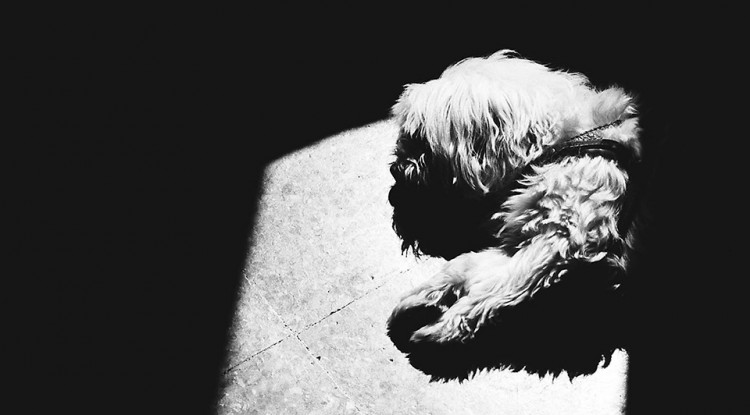
Treating Your Dog’s Diarrhea
Probably the most common complaint received by veterinarians is that of diarrhea. It’s such an easy condition to identify: The smell is unmistakable, as is its chocolate-pudding appearance. Most of the time, diarrhea is caused by a dietary indiscretion or stressful circumstances, and is self-limiting. Diarrhea is not a disease; rather, it is a symptom of a dysfunction of the gastrointestinal tract (GIT). When associated with bad food or food-borne pathogens, diarrhea serves to rapidly remove pathogens from the GIT before they have a chance to be absorbed and cause more damage.
Warning Signs That Diarrhea Needs Medical Attention
• Black, tarry stool, or stool with copious amounts of fresh blood (bright red)
• Loss of appetite
• Marked lethargy
• Frequent vomiting
• Signs of abdominal pain (bloating, groaning, panting rapidly or avoidance response when belly is touched)
• Lasts longer than 48 hours (Since it can rapidly weaken puppies and geriatrics, or dogs with chronic diseases, they may need veterinary attention sooner.)
However, when your dog has mild diarrhea and doesn’t meet any of the above criteria, the best things to start with are a 24-hour rice-water fast; white rice balls that contain active probiotic cultures; and the oral administration of an intestinal protectant such as kaolin clay and pectin (KaoPectate™) or a suspension containing bismuth subsalicylate (PeptoBismol™). Loperamide (Imodium™) can be given if the diarrhea doesn’t resolve easily; caution is required when using this OTC medication in Collies, and don’t use it for more than five days. (Another caveat: While dogs can tolerate PeptoBismol or KaoPectate, these medications should never be given to cats, as they contain salicylates, which are potentially toxic for felines.)
Fasting your dog allows her GIT to rest and recover from whatever insult it has received. During the fast, make sure she has plenty of rice water to drink. Rice water is the creamy liquid that results from boiling white rice in water. It’s important to use a good quality white rice; “minute” rice does not work and brown rice has too much fiber in it, which does not help firm the stool because it speeds the transit of digested material through the colon.
To make rice water, boil one cup of white rice in four cups of water for 20 to 30 minutes (depending on your altitude) until the water turns creamy white. Decant the liquid and allow it to cool. You can serve the rice water to your dog as often as she will drink it. If she isn’t interested, mix a teaspoon of chicken baby food (or another flavor that your pet likes) in the rice water to increase its palatability. (Hint: One cup of white rice makes a lot of rice water!)
Probiotics — living bacterial cultures intended to assist the body’s naturally occurring gut flora in reestablishing themselves—may also help speed recovery. These live microorganisms are found in yogurt, for example, and are also available from your health food store or your veterinarian as high-potency powdered acidophilus cultures, which are more effective than yogurt for diarrhea. Mix these cultures into the rice water that you are serving your pet during its fast.
After the fast is over, start your dog back on a bland diet of white rice cooked with extra water and mixed with small amounts of baby food for protein and flavor; for each cup of dry rice, use two to three cups of water. Continue to add probiotics to her food, using at least 2 to10 billion viable bacterial organisms in each meal you serve; to determine the level of “viable organisms” or “colony forming units” (CFUs) present in a probiotic such as acidophilus, look on the label—a reputable manufacturer will list that number.
Dosages for the two intestinal protectants mentioned above are approximate. Use the liquid medication, not the tablets, and give about 1cc of liquid for each 10 pounds of body weight up to three times daily. The bismuth subsalicylate has more anti-inflammatory activity, so may work better on patients with abdominal cramping.
If the diarrhea is very severe, you may want to also give your dog some loperamide (Imodium AD™), which can help to reduce fluid loss until the rice-water fast, white rice and acidophilus, and the dog’s own healing system can overcome the diarrhea. The published dose for loperamide in dogs is 2 mg (the standard-size capsule) for each 40 pounds of body weight, two to three times daily (this translates into 0.1 mg per pound).
Resource: Robert Silver, The Bark

my pom has had diarrhoea for a 3 days, I’m only giving him chicken, now his bottom is sore, can I use sudorem on him
jayne
You have to be careful because he may lick it off. If you apply it, apply just a very thin layer of it.
If he still has diarrhea, give him some plain canned pumpkin — about 1 tablespoon twice a day. The fiber should firm his stools.